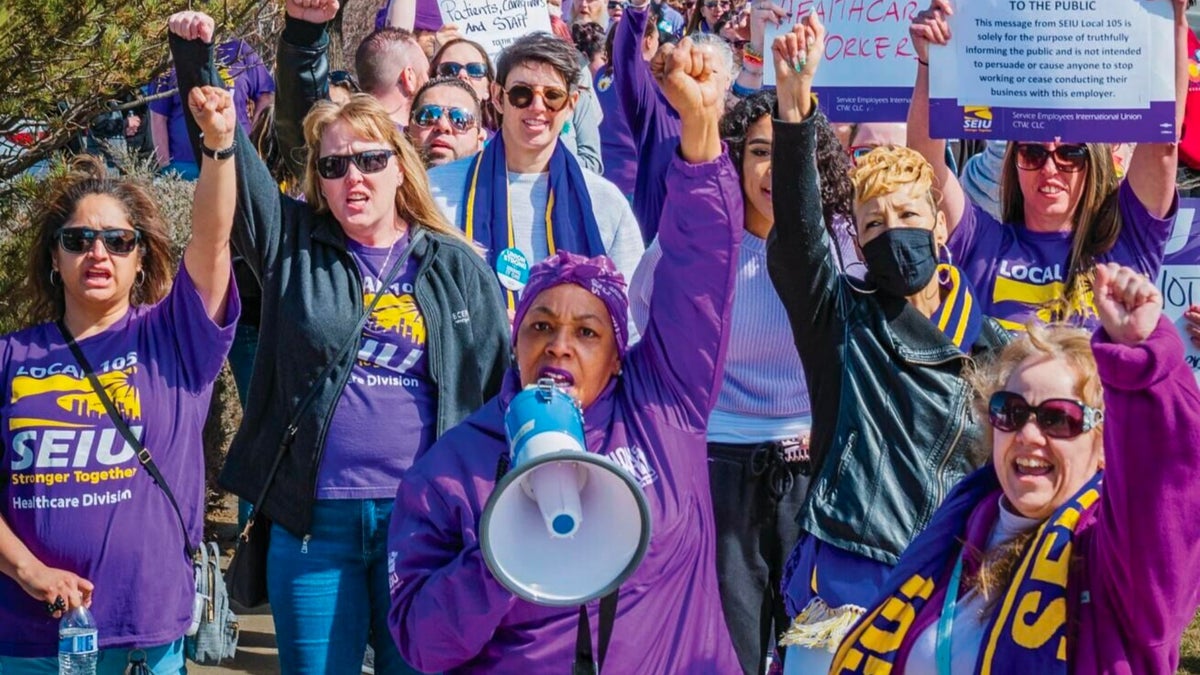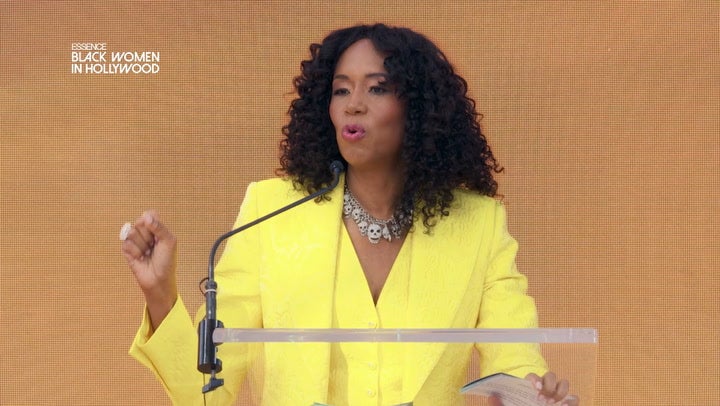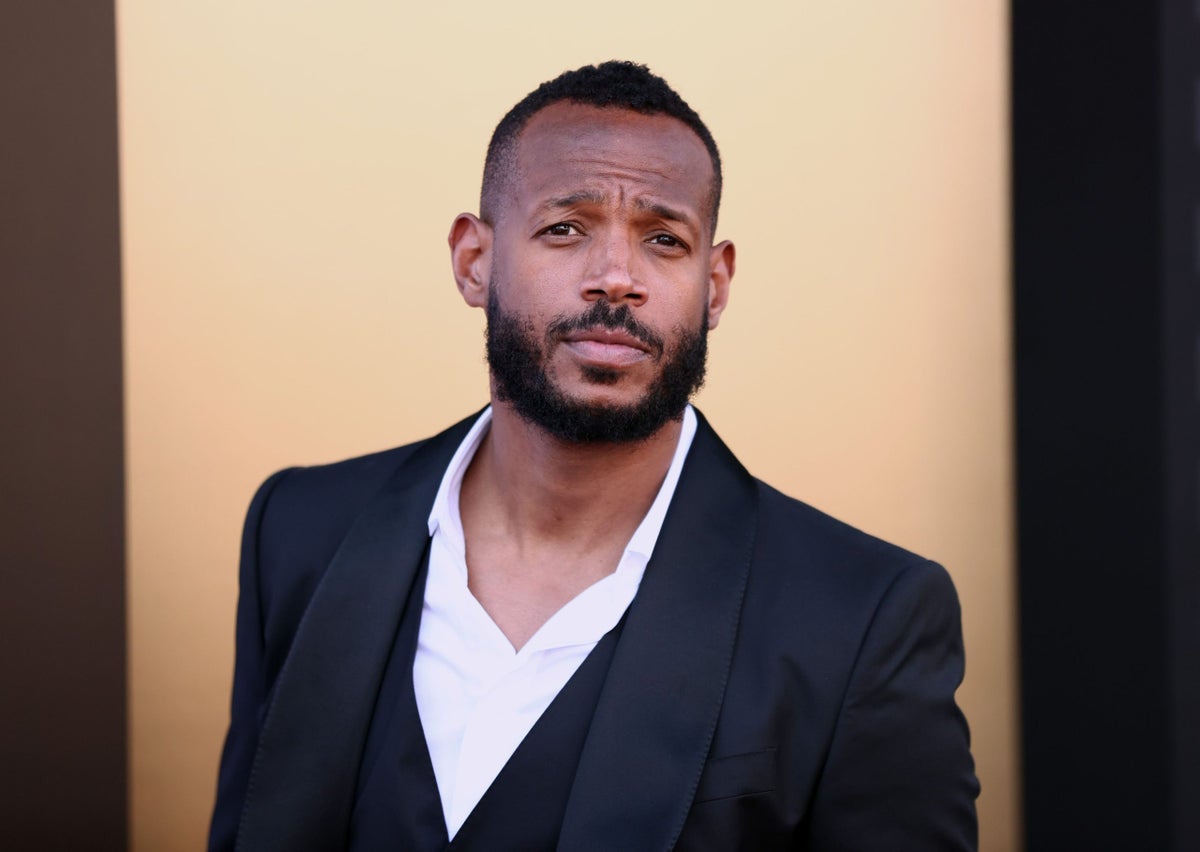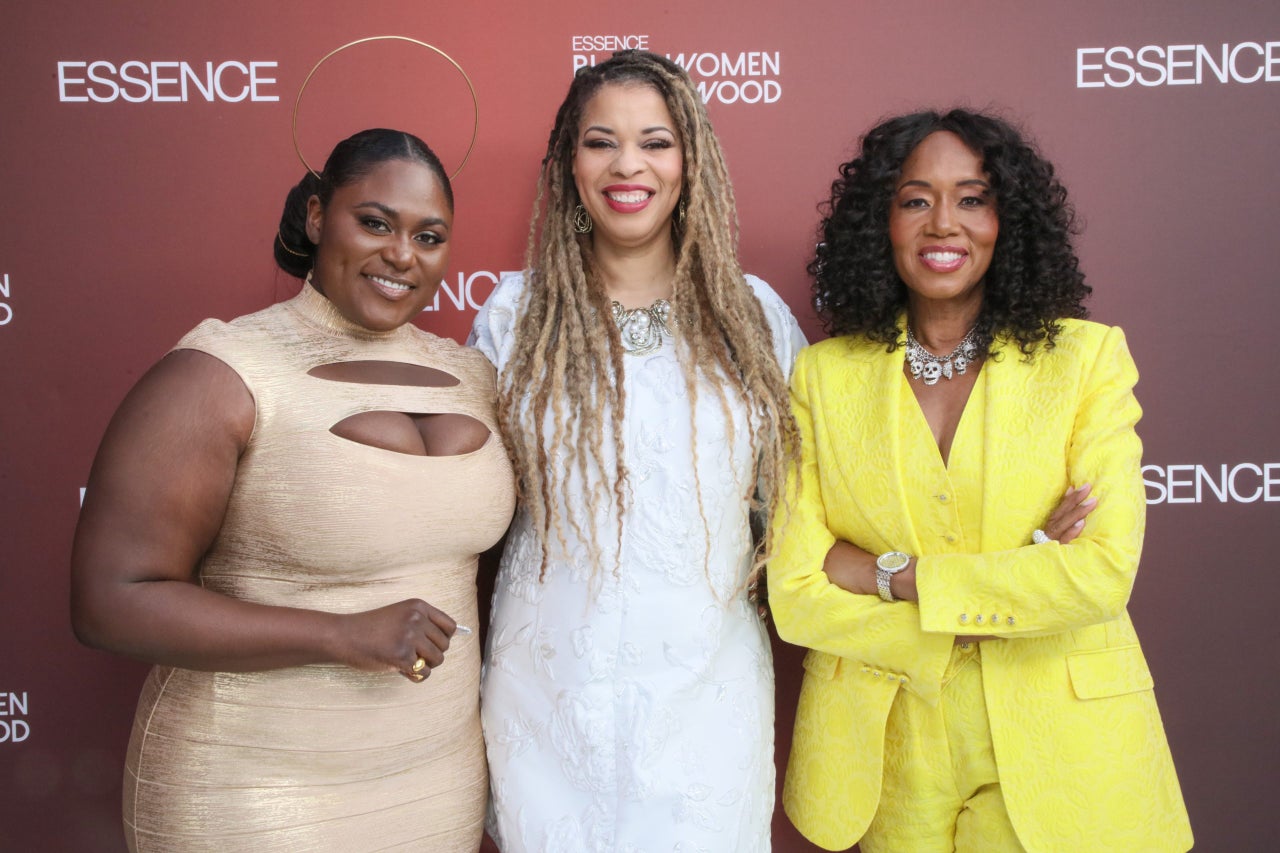
“It is my undying belief that Black women are the tide that raises all ships,” says Andrea Thornton Bolden, a showrunner and executive producer. “It’s not a strange sight at all to see Black women in the forefront of many movements, because those are the spaces where we tend to find ourselves. It’s an intrinsic part of who we are.”
Bolden is one of more than half a million people who participated in a labor strike in 2023. From Hollywood writers and actors to auto workers and teachers, a burgeoning labor movement has swept the country— with hundreds of thousands of union employees taking to picket lines to fight for higher wages, safer working conditions and greater job security.
I hope to one day tell my future grandchildren that I was a captain in the strike that perhaps was the turning point for the labor revolution in America.
Andrea Thornton Bolden
A Writers Guild of America (WGA) member, Bolden helped lead the union’s picketing as a strike captain at NBC Universal. “The reason this strike was so important to us is that our career was under existential threat,” she explains. “You had different media entities wanting to find ways to pay us less, using AI. They kept hiring smaller and smaller staffs to write the shows, so you also had fewer people doing way more work and getting paid less.”

After 148 days on strike—making this the second-longest labor action in WGA’s 104-year history—writers came to an agreement with the Alliance of Motion Picture and Television Producers (AMPTP). They voted overwhelmingly in favor of a three-year contract that secured pay increases; regulated AI use on projects; improved staffing and duration provisions; and achieved streaming-data transparency.
“Strikes are challenging,” Bolden says. “I personally hadn’t been trained in labor organization, but I was ready and willing to do it because I believed in what we were fighting for. I’m proud, and I hope to one day tell my future grandchildren that I was a captain in the strike that perhaps was the turning point for the labor revolution in America.”
Labor organizing has extensive roots for Black people. One of the earliest examples in the United States is the 1881 Atlanta washerwomen strike, in which a group of formerly enslaved Black laundresses came together to demand better compensation. Historically, Black labor has shaped the nation and its economy; more than 140 years after the Atlanta strike, Black women remain at the forefront of union leadership and labor organizing.
For Patricia Johnson-Gibson, advocacy runs in the family. “My late father, Melvin Gorman, Sr., was a union employee for the United States Postal Service,” she says. “I learned a lot of history about how unions can be effective, because of the experiences he went through.”

While in her second term as VP of health care at Service Employees International Union (SEIU) Local 105, Johnson-Gibson worked alongside 11 other union members on the national bargaining team and led a three-day strike in Colorado. This walkout was part of the largest health care strike in U.S. history, involving more than 75,000 Kaiser Permanente employees across multiple states, including California, Washington and Oregon.
U.S. health care facilities have been dangerously understaffed for years, with the COVID-19 pandemic further exacerbating workforce shortages. As Johnson-Gibson states, “This is the worst crisis I’ve ever seen, in the 26 years that I’ve worked for Kaiser. I believe that’s because they’ve made a decision to stretch people as thin as they can, at the risk of patient care.”
[T]hat fight alone keeps people from sleeping in their cars and being unhoused…Working for a multibillion dollar organization, that should never happen.”
Patricia Johnson-Gibson
About one week after the historic strike, Kaiser Permanente and a coalition of unions reached a landmark tentative deal that includes bonuses, strong protections against outsourcing, improved medical benefits for retired employees and a 21 percent wage increase over four years. “It’s a huge change, because that fight alone keeps people from sleeping in their cars and being unhoused,” says Johnson-Gibson. “Working for a multibillion dollar organization, that should never happen.”
According to Cornell University’s Labor Action Tracker, there were roughly 400 strikes across the U.S. from January 1, 2023 to November 30, 2023. Additionally, per the Bureau of Labor Statistics, Black workers continue to have a higher union membership rate than any other racial group. Among the most recent U.S. labor actions was the Portland Association of Teachers (PAT) strike, in which public school educators like Angela Bonilla spent weeks fighting for smaller class sizes, higher wages, safer working conditions and better student mental health support.

Bonilla, who is from the Bronx, joined PAT during the 2016-17 school year as an educator. Since then, she has worked her way up the union ladder. In 2022, she was elected as the organization’s first Afro-Latina president. “Every school that I ever worked at had a really strong union culture,” she says. “When I felt powerless at work, I leaned into union work, because that’s where the power was.”
After several months of bargaining with Portland Public Schools (PPS) and making little progress, PAT members went on strike for the first time in the group’s 30-year history. “We were on strike because our students deserve more than they’ve been given,” Bonilla explains. “We’re tired of having rats and mold in our schools, asbestos tiles in our classrooms falling on kids’ heads and extreme heat because there’s no air conditioners.”
“History matters; we’re only here because of all the work that’s come before me.”
Angela Bonilla
The teachers strike began on November 1, 2023. Nearly four work weeks later, PAT and PPS came to a tentative agreement and successfully ratified a three-year contract. In addition to the new class-size limits and improved mental health support for students, it provides a cumulative 13.75 percent cost-of-living increase for educators, among other provisions.
“History matters; we’re only here because of all the work that’s come before me,” says Bonilla. “When we’re out here fighting for our kids, we’re going to make sure that we get great public schools for every student. We’re just grateful for the support that our families and communities have given us, because it keeps us going.”
The prior organizing work that Bonilla mentions sets precedents for labor leaders today. When segregation and racial discrimination excluded Black people from some of the most powerful unions in America, Black women labor leaders took matters into their own hands by forming their own organizations. Unfortunately, labor inequities persist, with Black women still disproportionately affected by the pandemic, overrepresented in low-wage jobs, and negatively impacted by racial and gender pay gaps. Nonetheless, history has shown that through unionization, collective action and worker solidarity, change is possible.
Given ongoing challenges in the job market, Black women remain the backbone of the labor movement, and they continue to lead present-day struggles for economic justice. “The recent strikes have sent a clear message that people are willing to fight and stand together because we want to do what’s right by the folks that carry these industries,” says Johnson-Gibson. “We’re the frontline faces that people see—no one ever sees a CEO. I think it’s time that people pay attention to the labor movement. We’re here. We’re not going anywhere.”







